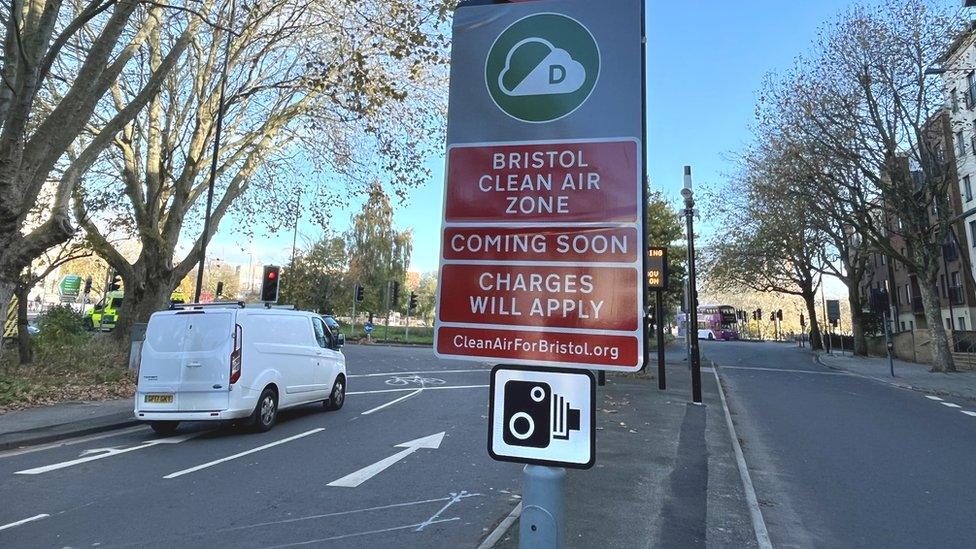Bristol Clean Air Zone crippling for charity volunteers
- Published
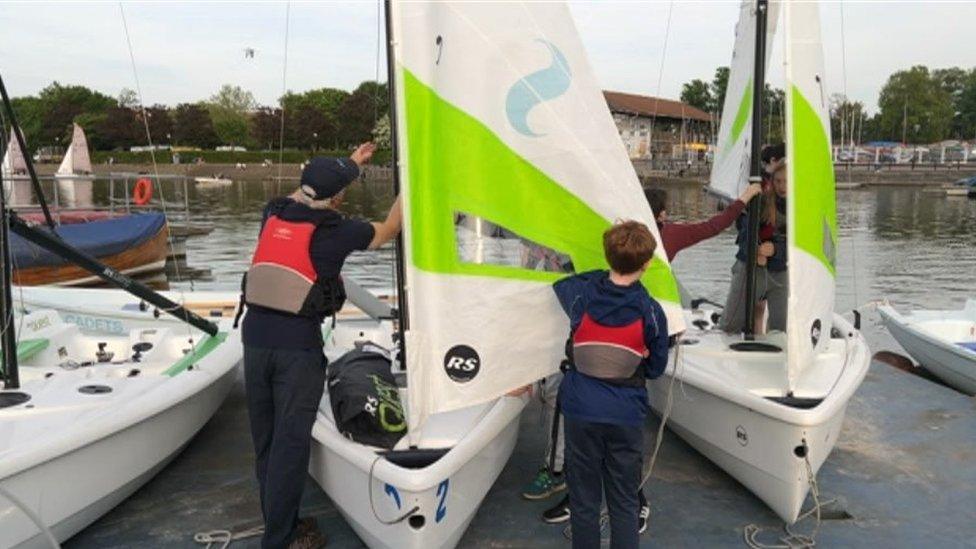
Adventure Sea Cadets teaches sailing and other skills to young people
A charity working with young people has said it is being "crippled" by Clean Air Zone (CAZ) rules, six months after the initiative was launched.
The Adventure Sea Cadets in Bristol teaches sailing and other skills to members from its base in the docks.
It is just within the CAZ and said the £9 a day charge is affecting volunteers and people dropping off children.
Bristol City Council said the CAZ will bring air pollution within legal limits in the shortest possible time.
The government-led initiative was launched in Bristol on 28 November to reduce the city's high pollution levels.
Drivers of the most polluting vehicles are charged for entering the city centre.
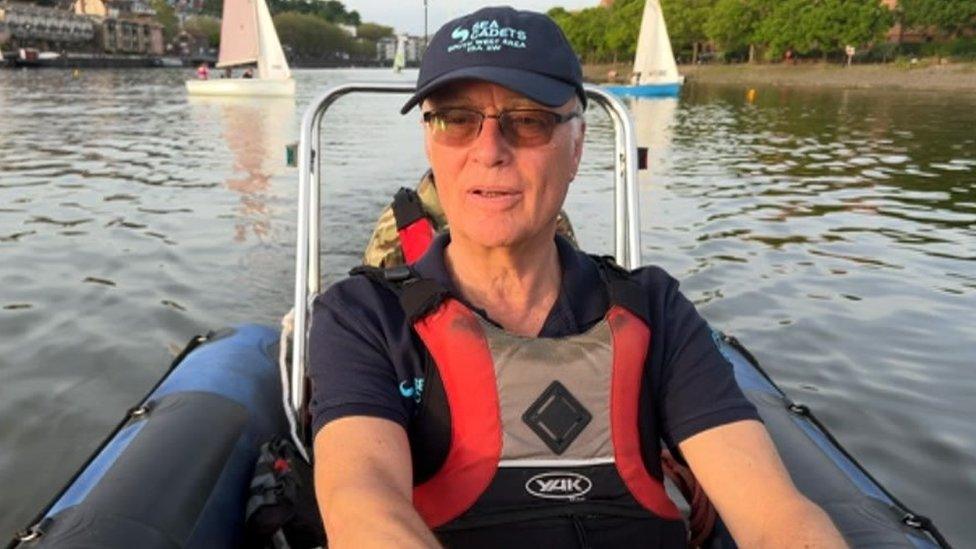
Bob Russell said they are supportive of reducing pollution but the CAZ is disproportionately affecting people on lower incomes
Charity volunteer Bob Russell said some parents are struggling to take their children to the group due to having non-compliant vehicles.
"A £9 charge per night to get in, it's crippling some of us. We are losing cadets, we are losing staff," he said.
"They are not joining us because it's £18 to get here two nights a week."
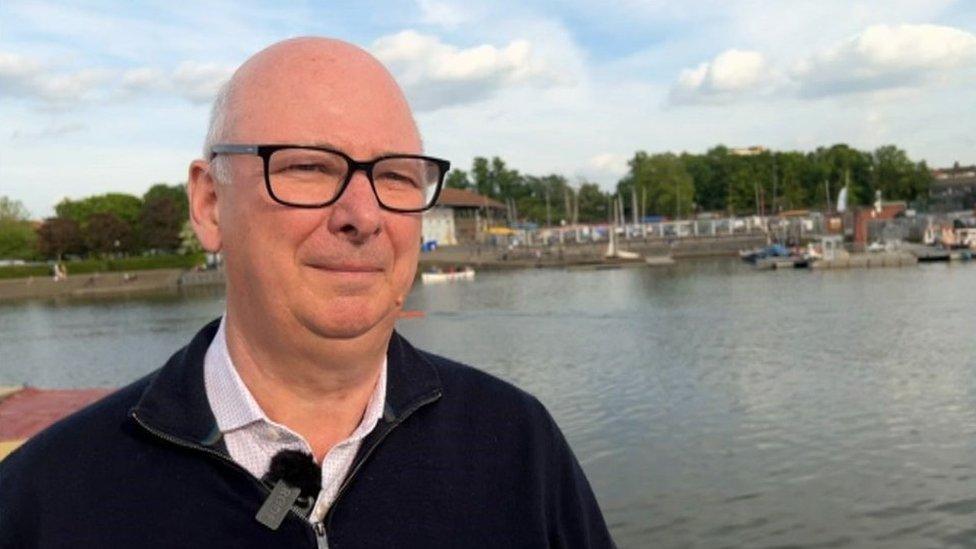
Tim Moran said the CAZ has made the charity's work less accessible
Chair of trustees at the Bristol Sea Cadets, Tim Moran, said they are also having to raise funds to replace their minibus to avoid the charges.
"It's a big challenge, minibuses are not cheap," he said.
"We need to raise about £20,000 to £25,000 and to date we've raised about £10,000 of that."

The CAZ figures
by Paul Barltrop, politics correspondent
Bristol City Council will not give any official figures for how many vehicles are being charged for driving in the CAZ - and will not do so until the end of the year.
But it is now clear that around £250,000 a day is being paid by drivers.
The number of vehicles driving into the zone on a weekday is around 150,000, back up to pre-pandemic levels.
The proportion that are non-compliant - in other words are more polluting so must pay to enter the zone - is 20%.
That means around 30,000 drivers a day are either paying the charge (£9 for cars and taxis, £100 for lorries and coaches) or being fined; a small proportion of vehicles are exempt.
Which means £250,000 a day is being paid.
The money goes initially to central government, which uses some to help administer clean air zones.
The remainder will come to Bristol, and there are strict rules on what it can be used for. They include running the city's CAZ scheme and helping people switch to cleaner modes of transport.
The number of polluting vehicles coming into the CAZ has fallen, but it seems many drivers have accepted that £9 is a price they are prepared to pay to drive around Bristol.

Mr Moran said due to raising money for a new minibus combined with the cost of living crisis and "big energy hikes" they now face trying to triple their income to cover costs.
He added public transport was a "no-no" because the last Park and Ride bus, costing £3.50, leaves at 21:20 which is before they finish.
Mr Morgan said it is a big expectation for many of their volunteers, who are retired and drive older diesel cars, to pay "something in the order of £1,000 a year just to come and do their volunteering two nights a week".
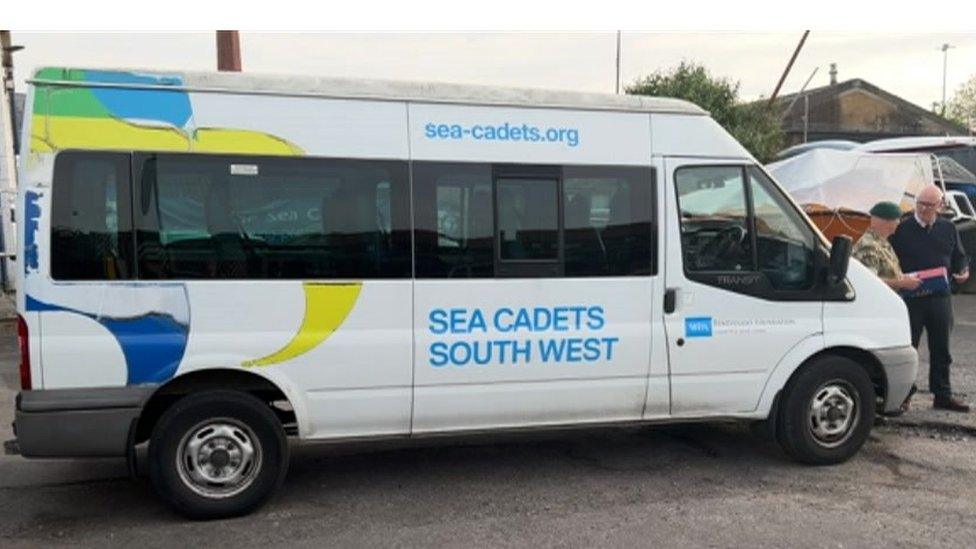
The charity needs to replace its minibus which is non-compliant for the CAZ
Bristol Mayor Marvin Rees told BBC Radio Bristol on Thursday that there is "both a legal and moral responsibility to deliver clean air".
"The legal requirement means we have to deliver compliant air in the shortest time," he added.
"The point of a Clean Air Zone is unfortunately to actually impact on people so that they change their vehicle. That is our responsibility."
He said that while the CAZ was a "very blunt instrument... a good thing can have negative consequences for some people".
He added that it was because of this, he delayed the implementation of the scheme to give people more time to prepare.
"We negotiated hard with government to secure a £42m transition package to support people in changing their vehicles over or adopt new means of transport," he said.

Follow BBC West on Facebook, external, Twitter, external and Instagram, external. Send your story ideas to: bristol@bbc.co.uk , external
Related topics
- Published8 April 2023
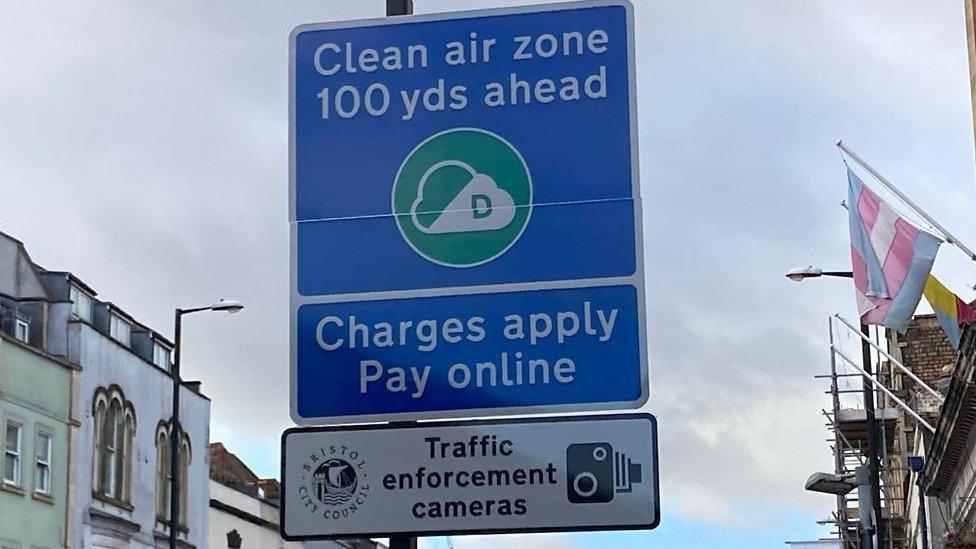
- Published14 November 2022
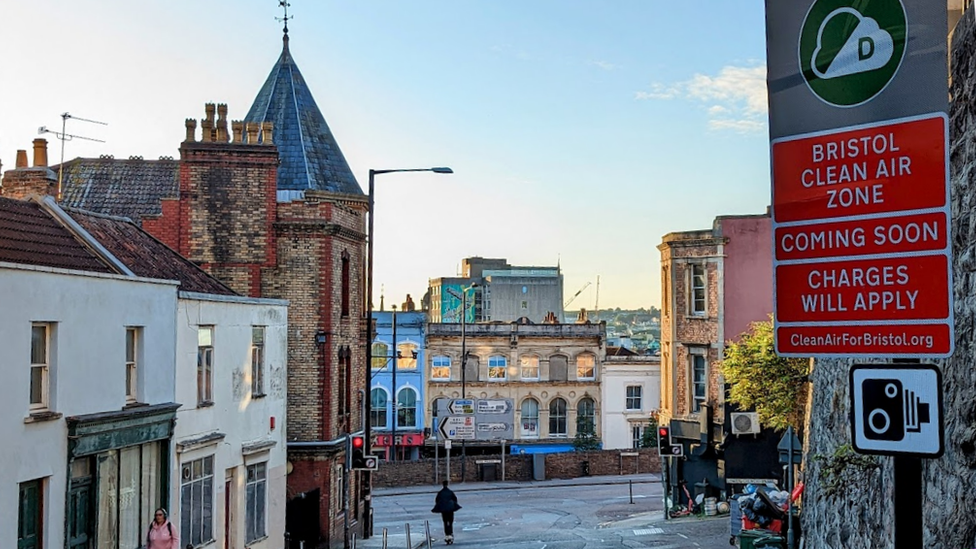
- Published28 November 2022
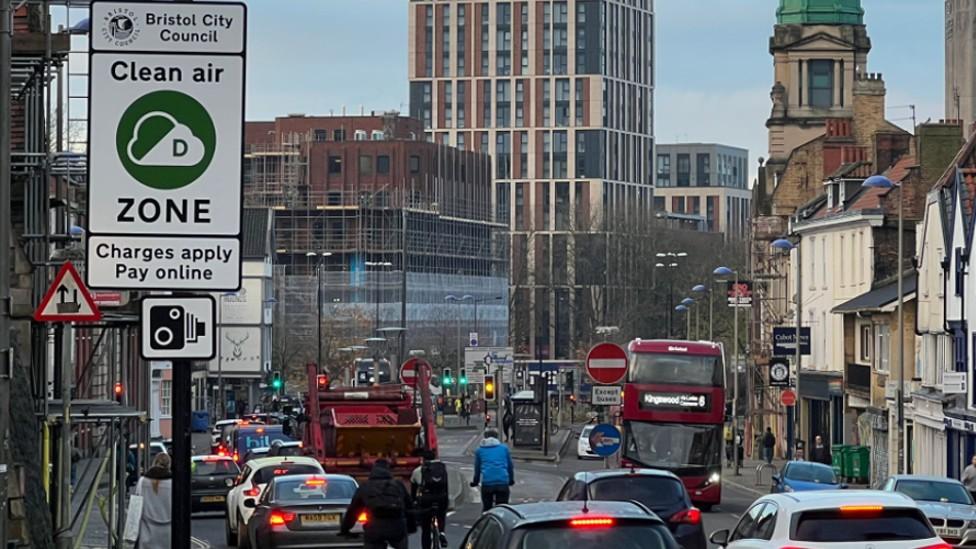
- Published8 December 2022
